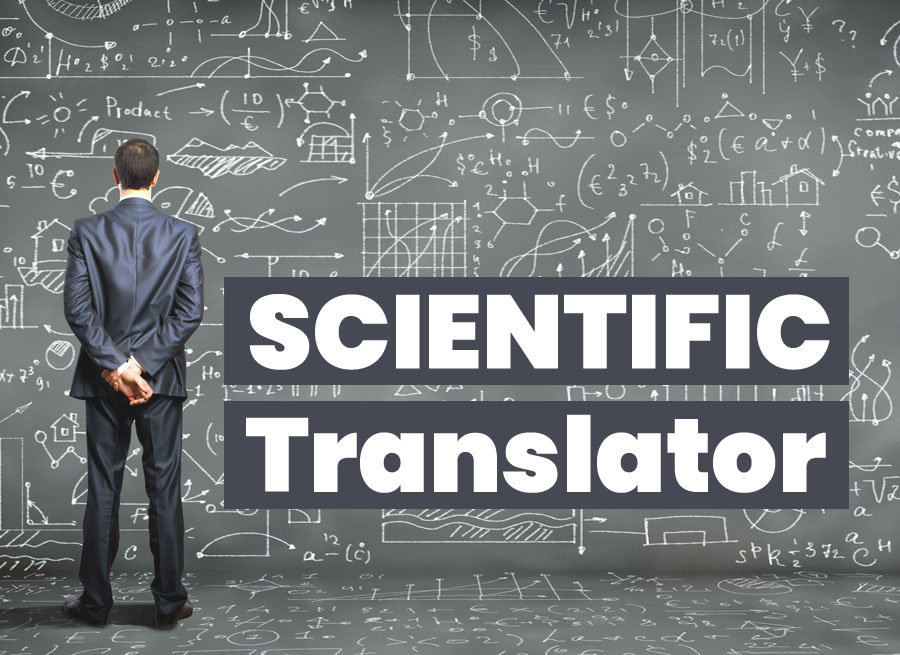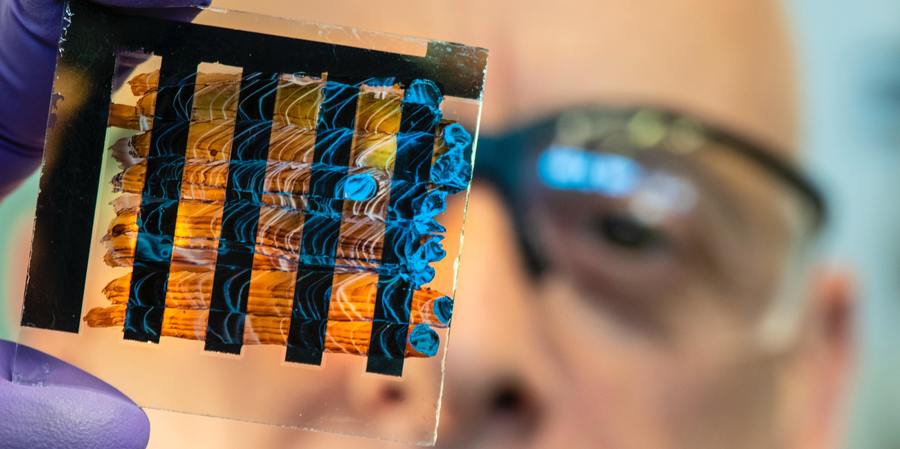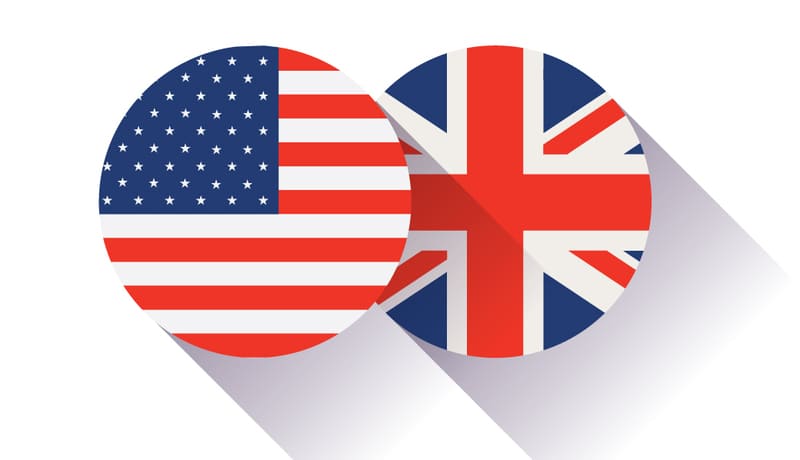Scientific Translator

When is this type of translation commissioned?
The name itself suggests that this is one of the most complex types of translation. Although it is not the most popular type of service for which clients turn to translation agencies, it is substantial. Translating scientific texts into other languages allows for better development of science on a global scale. Thanks to them, researchers from different countries can use more sources in their work. This enhances the quality of scientific publications. Cooperation in this field is therefore a favourable situation (development of science), so let us take a closer look at a scientific translator.
Technical vs Scientific Translator
At first sight, a technical translator is associated with translating telephone manuals and has nothing to do with science. It turns out, however, that they have quite a lot in common, hence it is worth distinguishing between the two terms at the outset. Broadly speaking, a technical translator is related to scientific knowledge applied in practice, whereas a scientific translator is related to pure science (i.e., theoretical knowledge). Sometimes there may be a clear difference between theory and practice, but sometimes they may be intermingled to the point they become inseparable. For example, a research paper on a particular disease – one that would be presented at an international symposium of medical specialists – would involve the analytical aspect of pure science combined with practical knowledge applied to the treatment of the disease (e.g., clinical trials of an experimental drug). Therefore, when writing about the translation of scientific texts, it should be emphasised that we are talking about texts of a theoretical nature.
What distinguishes a scientific translation from other types of translation?
In order to have such a translation professionally translated, it is crucial for the translator to have the necessary academic background. Of course, every translator should be a specialist in their field. Nevertheless, translating a fashion article requires a different kind of preparation compared to translating the results of a study on new drugs. Original texts are often written by experts and their translations commissioned by universities or scientific organisations. Therefore, it is extremely important to have good knowledge of the applicable terminology, academic style in both languages, as well as a thorough understanding of the topic. The last condition excludes people without a professional background – anyone can “memorise” a glossary on a given topic, but the quality of such a translation will always be different from the one made by a person with specialist education. Moreover, a scientific translator online requires both a certain degree of versatility and specialisation.
It is not easy for one person to be a specialist in, e.g., psychology, anthropology, pharmacy, psychiatry, and soil geography. On the other hand, a scientific translator should have “basic” knowledge of chemistry as well as biology and physics. Why is basic in inverted commas? Because we are not talking here about the core curriculum for secondary school, but about an even higher level.
When speaking of further differences, noteworthy is the rather low level of freedom in this type of translation. There is no room for adaptations or any other fancy translation techniques and strategies. It is essential to concretely convey a given idea and relevant specialist terms. So it is also a translation with quite a responsibility. Sometimes a single mistake can ruin everything, such as conveying the methodology of an experiment or the author’s conclusions incorrectly. And thus, it is worth using only a trusted and experienced translation agency.
A scientific translator is a rarity, but there are many texts to be translated.
Where does this disproportion come from? Reasons for this can be found in the mentioned strict requirements that must be met when translating scientific texts online. After all, such a translator has to combine two difficult professions – a translator (linguistic knowledge) and a scientist (scientific knowledge). Frequently, translators, who are better at humanities subjects, cannot cope with such specialised knowledge in science. Scientists, on the other hand, are not always comfortable with foreign languages. Furthermore, absorbed by their own research, they do not always have time to do additional translations. This may cause “queues” forming when waiting for a translation, especially in unusual language pairs.
Fortunately, in our Linguaforum Translation Agency we have scientific translators who have been able to master both areas simultaneously. They are available for our clients 24/7.

Make sure, better wait
When choosing who is going to make our translation, haste is definitely a bad adviser. As it has been already mentioned, even a single translation error may lead to disastrous consequences. Therefore, it is always better to wait longer and make sure that our translation will be done by a professional – a scientific translator. In this case, there are no jokes, and the list of possible risks can be really long. Disproving the results of our work abroad is one thing, but in some cases, scientific texts may concern human and animal health. For example, the use of new drugs or known drugs for a new purpose. Admittedly, it remains to be established who made the faulty translation, but the work itself is signed with our name anyway. In conclusion, it is better to wait longer, but to receive a properly translated text for which you will not have to be ashamed of later.
What does a scientific translator pay their attention to when translating?
Translating scientific research and articles requires, most of all, accuracy. The term must match the term, the numbers with the numbers. Scientific translation focuses on the translation of scientific texts such as scientific journals, scientific research papers, and clinical trials. Scientific papers are often still read many years after publication, and are described, cited, and used in further work by other scientists, research institutions and institutes in other countries. This is why accuracy is so important. In addition, authors of texts in the original language use various types of abbreviations.
It is the translator’s task to decipher them correctly during translation. It is also worth being prepared for minor corrections. Common mistakes in scientific research papers include inconsistencies between figures in tables and accompanying graphs that show something different from what are supposed to. Sometimes tables are also referred to by non-obvious symbols. In such cases it is advisable for the scientific translator to correct the mistakes in brackets or footnotes. When in doubt, it is best to ask the author personally what he exactly had in mind. Better a question from the translator while working on the translation than a terrible mistake.
Just as with other types of translation, it is a good idea to re-read the text as a whole, once having finished. Correct any potential errors or make any other corrections. Some people prefer to put the text aside for a day or two and only then read it again. Because then you get a fresh and better perspective on the matter.

What languages do we choose the most often when translating scientific articles?
The world of science is known for not limiting itself only to specific countries or languages. We cooperate on an international level. Nonetheless, English remains the indisputable leader. It is considered to be the language of the world. Furthermore, it is used by scientific centres of global importance, such as Harvard, Oxford, and Cambridge. From the perspective of Polish science, we will most often translate into English. The silver medal in this field goes to the German language. We regularly cooperate with neighbouring Germany. In addition, German is also spoken by Austrian and Swiss research centres.
But Linguaforum Translation Agency is not afraid of any challenges, so you can also contact us for scientific translations into niche languages. Our offer includes more than 50 languages in general.
Who should actually translate scientific articles?
A scientific translator online must have a great deal of knowledge as well as diligence, patience, and a keen eye. By choosing this type of translation, we also accept great responsibility in the event of any mistakes. And there can be none, since the task is most likely to be commissioned by a serious institution, which certifies that the translated material can be used for further research in the field.
Translated and written by: Patryk Kozicki
Sources:
Share on:
Newsletter
Sign up for our newsletter. We will notify you about new blog entries and articles!
By sending your e-mail address you consent to the processing of your personal data – the Administrator of personal data is the company Trzecia Połowa Sp. z o.o. based in Warsaw, ul. Sarmacka 1A/82






